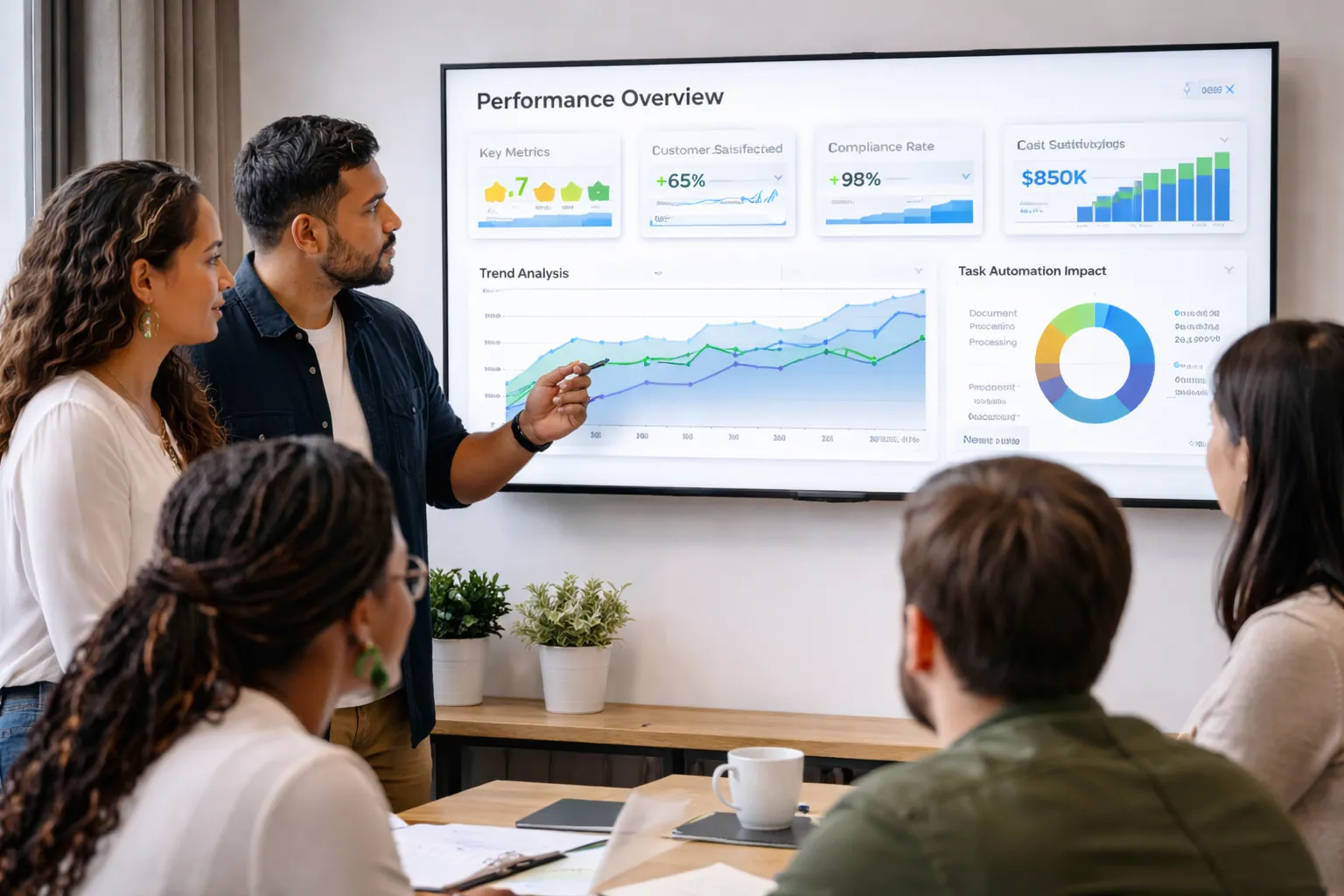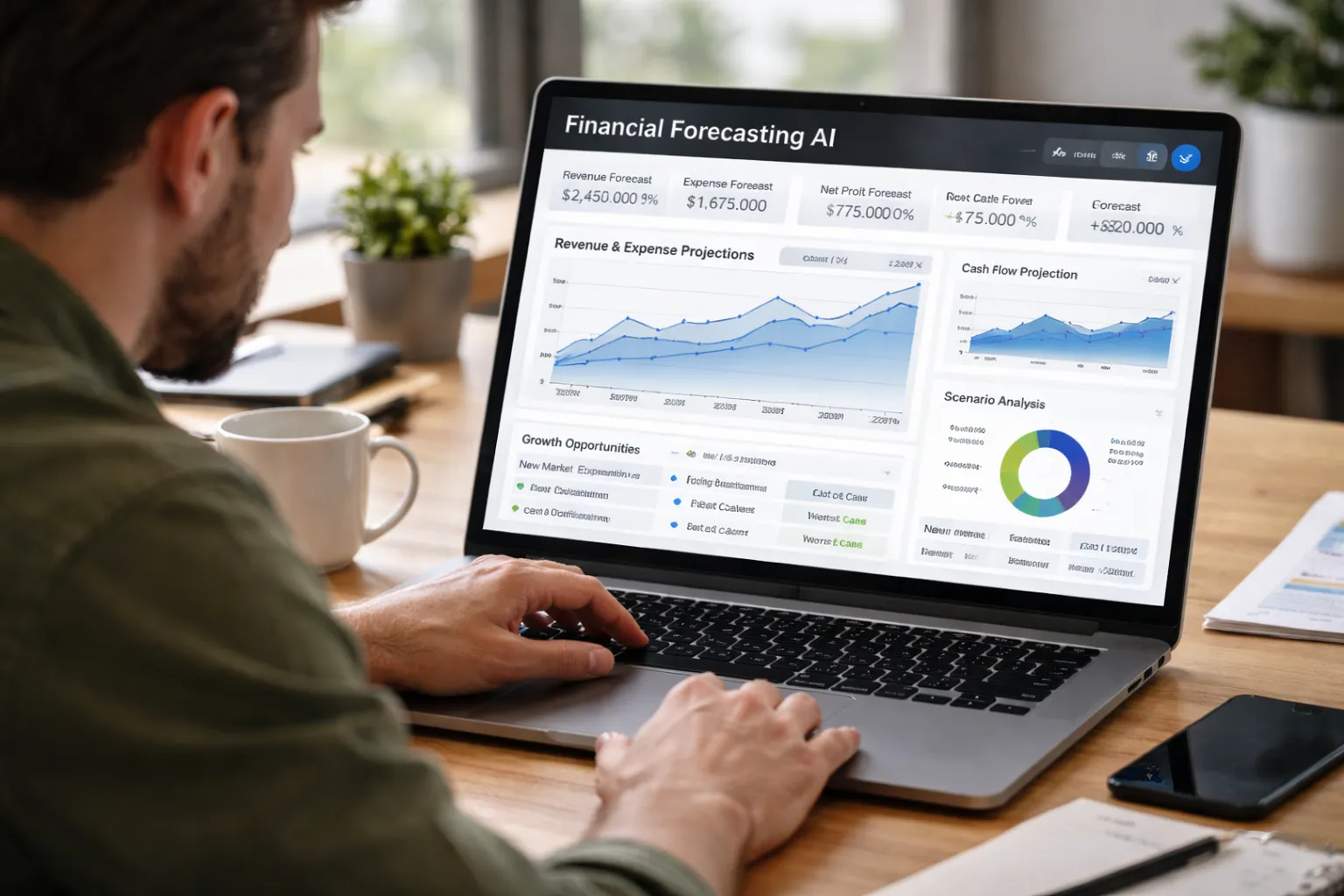Enterprise: AI Forecasting & Strategy Agents
By unifying data, providing predictive insights, and simulating strategies, enterprises can act faster, smarter, and more cost-effectively.
AI Data Modelling, Forecasting
Enterprise Organisation
June 13, 2025
New Zealand


AI works best when paired with human leadership
It provides the insight, but it’s people who apply vision, judgement, and context. Together, they create an enterprise that’s not just reactive, but future-ready.
Challenge:
Large enterprises face unique challenges: fragmented data, slow decision cycles, and reliance on costly external consultants.
In my experience working with enterprises like health insurers and NZ Police supply chain, forecasting and strategy alignment were often undermined by:
- Data silos — critical information scattered across finance, operations, HR, and customer systems, making it hard to form a single version of the truth.
- Slow decision-making — by the time reports were compiled, presented, and approved by leadership, the market or operational environment had already shifted.
- High consulting costs — executives frequently engaged external advisors to do work that could have been automated or streamlined internally.
These barriers not only delayed action but also reduced confidence in decision-making. Leadership teams often operated reactively, not proactively.
Solution:
AI forecasting and AI strategy agents provide a step-change for enterprises. Instead of waiting weeks for reports and workshops, organisations can gain real-time intelligence and scenario testing.
The best-practice approach I’ve applied is:
- Data integration: Consolidating key datasets (financial, operational, customer, supply chain) into one accessible source.
- Predictive modelling: Using machine learning to identify patterns and predict outcomes like churn, demand, or claims volume.
- AI agents as “virtual consultants”: Running scenario simulations (“what if we increase staffing here?” or “what happens if supply delays continue?”) and presenting decision-ready insights to executives.
- Governance controls: Ensuring models are transparent, monitored for bias, and explainable to leadership teams.
This doesn’t replace human executives — it empowers them with board-level insight at speed and scale.
Impact and Benefits
From what I’ve observed in enterprise environments, the benefits are significant:
- 20–50% increase in forecast accuracy when AI models process real-time data instead of historical reports.
- Decision cycles reduced from weeks to days — helping leadership stay ahead of market changes.
- Lower reliance on external consultants — saving money while building in-house capability.
- More resilient operations, as risks and opportunities are flagged earlier.
I’ve also seen the human side of this shift. Executives and managers who were initially sceptical about “AI doing strategy” quickly saw the value once they realised AI wasn’t replacing judgement, but augmenting it. It provided clarity and speed, while people remained the ones making final calls.
Have a question about Forecasting and Strategy Agents?
What are AI forecasting and strategy agents?
They are AI-driven models that analyse enterprise data, identify patterns, and simulate potential outcomes. They help leadership make faster, evidence-based decisions by showing “what is likely to happen” and “what could happen if we change course.”
Do these agents replace executive leadership or consultants?
No. They accelerate analysis and scenario testing, but they do not replace judgement, context, or accountability. Executives still make the decisions — AI simply provides the insight and options more efficiently than manual reporting.
What problems do these tools solve for large organisations?
Three major barriers are consistently addressed:
fragmented data held across multiple systems
slow decision cycles caused by manual reporting
high consulting spend for basic analysis and forecasting
AI reduces reliance on outside firms and empowers in-house teams with better information, faster.
What types of forecasts can AI improve?
Examples include:
demand and capacity planning
workforce and rostering needs
customer churn and claims volume
procurement and supply chain disruption
revenue and financial performance
When data is integrated and real-time, accuracy improves dramatically.
How does scenario simulation work?
Executives can ask questions such as:
“What if we reduce wait times by 10%?”
“What if supplier delays continue next quarter?”
“What if we increase shift staffing?”
AI models run the scenario instantly, showing risks, impacts, and cost implications before decisions are made.
Is this secure and responsible for public-facing organisations?
Yes — when implemented with governance controls.
Changeable embeds:
transparency and explainability
monitoring for bias
privacy and compliance safeguards
human oversight and sign-off
This keeps models trustworthy and auditable for boards, regulators, and stakeholders.
Do we need to overhaul our entire data estate first?
Not necessarily. Many enterprises begin with priority datasets and expand iteratively. Integration can be phased rather than requiring a full data transformation up front.
How long does implementation take?
It depends on data maturity.
Pilot models and strategy agents can often deliver value within weeks, while broader enterprise integration may follow over months. We prioritise quick wins to demonstrate capability early.
What measurable benefits have enterprises seen?
Based on real engagement outcomes:
20–50% improvement in forecasting accuracy
faster decision cycles (weeks down to days)
reduced spend on external analysis and consulting
earlier visibility of risks and opportunities
better strategic alignment across departments
How does this approach build capability instead of dependency?
By bringing forecasting and scenario modelling in-house rather than outsourcing it.
Enterprises retain:
knowledge
models
dashboards
and decision frameworks
The goal is to empower teams — not lock them into a vendor.
Why is human leadership still essential?
Because AI can show correlations, probabilities, and trade-offs — but only people can interpret cultural context, stakeholder impact, ethics, and long-term vision.
AI is the intelligence. Humans are the decision-makers.


